Jenny Dorsey
Los Angeles and New York, USA
Studio ATAO
Instagram: @chefjennydorsey @studioatao
*Changemakers is a Cross Cultures series spotlighting inspiring women who are creating and doing in the F&B ecosystem; eading the way and helping better the world.
Based in between Los Angeles and New York, Jenny Dorsey is a professional chef, writer, speaker, social entrepreneur, and founder of Studio ATAO, a nonprofit community organization that creates interdisciplinary content and experiences that intersects food, art, technology and social impact.
Jenny started her career as a management consultant in the fashion industry before moving on to become the youngest MBA candidate at Columbia Business School. She found herself depressed and lost, and since she had been accepted early-decision, decided to take a sabbatical, enrolling at Institute of Culinary Education (ICE). She eventually left Columbia after a semester to pursue a career in food (she started her own LLC — Jenny Dorsey Culinary Consulting)– which she utilizes to express the full range of human emotions and social commentary about the world.
Last March, she delivered a TEDx on that topic titled “How Food Can Be A Source of Identity, Intimacy and Vulnerability”. With the advent of COVID-19, Studio ATAO has had to suspend their event operations. But as they are still as focused on being of service to the community and supporting one another, they have decided to put together Community Skillshares– free, 30-minute virtual learning sessions through their Instagram Live on pertinent, actionable topics like personal finance, mental health and sustainable cooking.
Tell us about you. Where were you born, raised, and what you are making or doing at present?
I’m a first generation Chinese-American born in Shanghai, China who immigrated to the US when I was 3. I spent my young years in the Bronx, New York before moving to Seattle, Washington where I also attended college. I moved back to NYC after graduation to work in management consulting within the fashion and luxury industry before realizing I was miserable. I ended up applying early decision to Columbia Business School, and when I was accepted I took the in-between time to go to culinary school at the Institute of Culinary Education. I still started at Columbia but left after a semester to pursue food full time.
Now, I am a professional chef who runs a nonprofit community organization called Studio ATAO. We create content and experiences at the intersection of food, art and social impact. I also continue to do independent culinary consulting, food writing and some food styling.
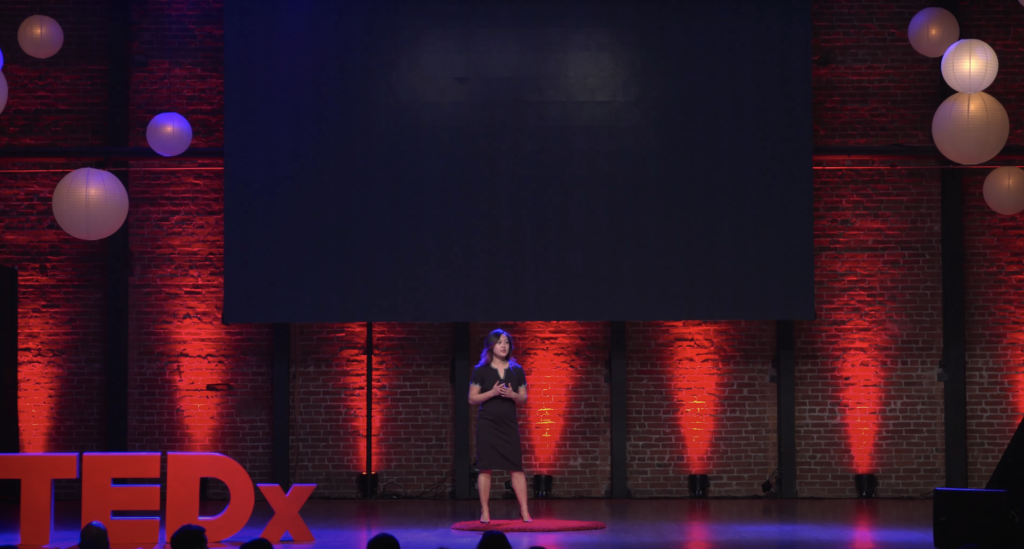
How did you end up working at your present career? How long have you been doing this/ When did you start?
After culinary school I worked in various starred restaurants in NYC and SF before landing a full-time job in R&D at Le Pain Quotidien (headquartered in NYC). My manager and I were in charge of R&D for menus in the US, UK and France. I loved R&D, but hated the company, so after some time there I branched out on my own to become a freelance… “consultant”. I was very privileged that I could do this with the help of my then-boyfriend, now-husband, as the first few years were a lot of very variable income. I bounced around trying out different jobs within the industry, taking on odd gigs — including selling juice door-to-door to some of Silicon Valley’s biggest VC firms. After a while, I was able to build up a roster of regular clients, many of whom I still work with today.
During that time, I realized I couldn’t actually be creative in the way I wanted to. I wanted to make the food I wanted to make, not what was required. So my husband and I started Wednesdays, a popup dinner series aimed to deepen conversations. It started with 8 people in our apartment, then became strangers in our apartment, then became 100 people in a rented space. It was a scary, shocking, wild learning experience and I’m so amazed it received the press and support that it did. However, I also quickly saw that our original mission of honest, open conversation — radical candor, as we would call it — was missing and in its stead, a “sceney” place to eat. So I took a break after our January 2018 popup and pivoted the concept entirely.
Now, Studio ATAO still hosts events but they are very specifically themed around bigger social impact issues. We’re best known for Asian in America, which is an exhibition and dinner experience that explores the Asian American identity through food, drink, virtual reality and poetry. Topics we cover include the model minority myth and the white male savior complex. We’ve toured across the U.S. and are looking to bring the experience to many more museums once we are allowed to again.
Studio ATAO also hosts industry conversations via our Experimental Salons discussion framework and develops toolkits on specific topics — such as our recent series on tokenization in food media (toolkit here). We also use this model to host difficult conversations in teams and groups on the corporate level, especially on DEI initiatives
We also host Community Skillshares (more on that below!) and create custom events for mission-aligned organizations.
I also write professionally about food, which I started doing in 2017. My bylines are on my website www.jennydorsey.co.
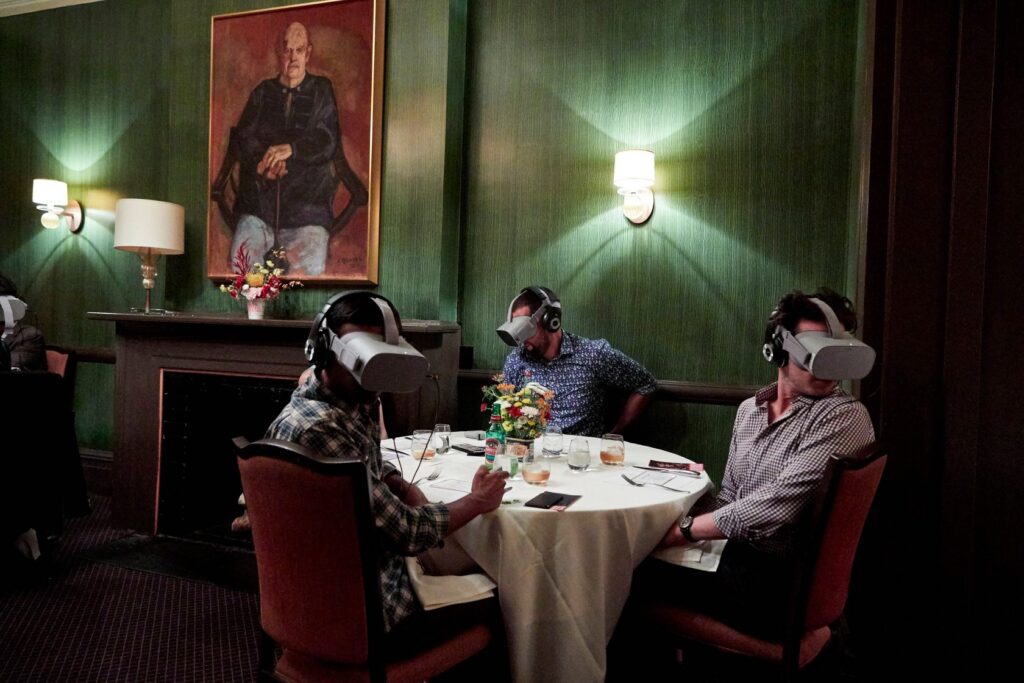
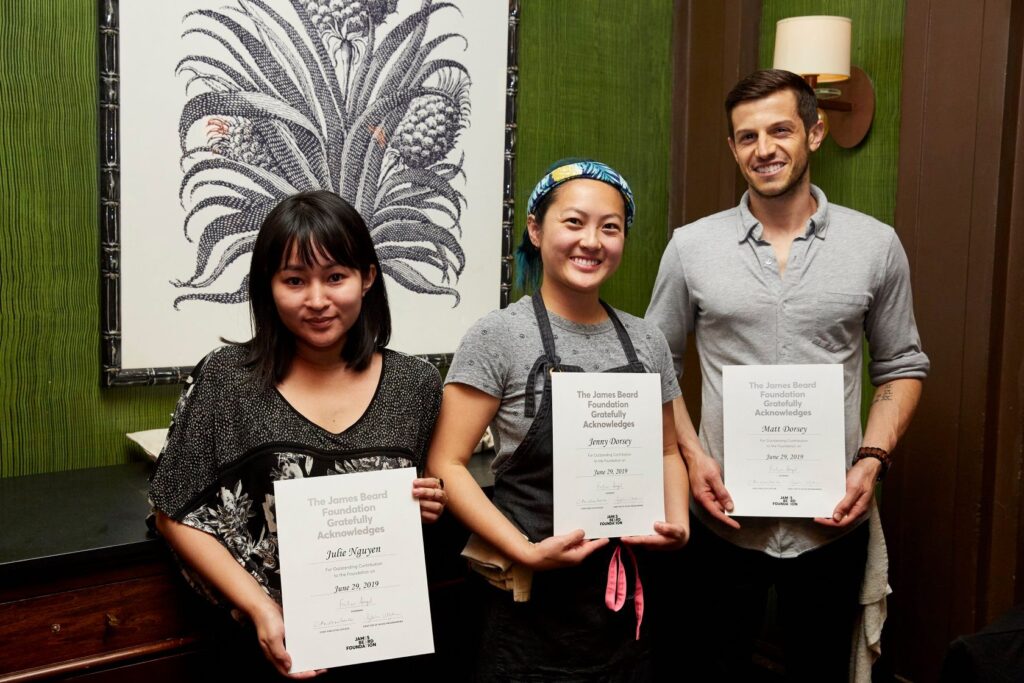
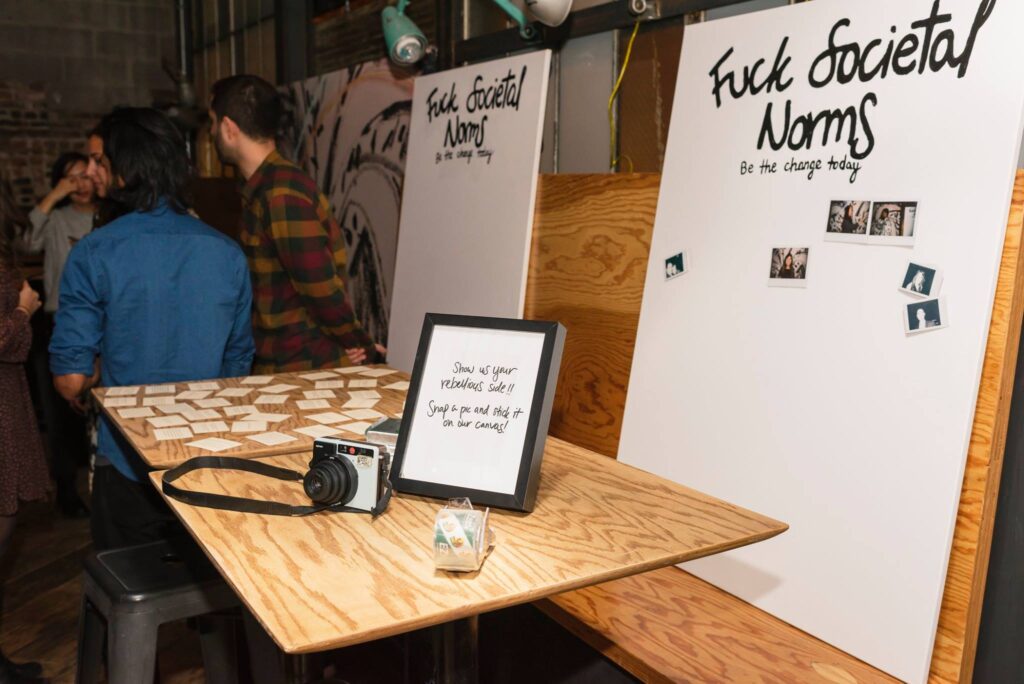
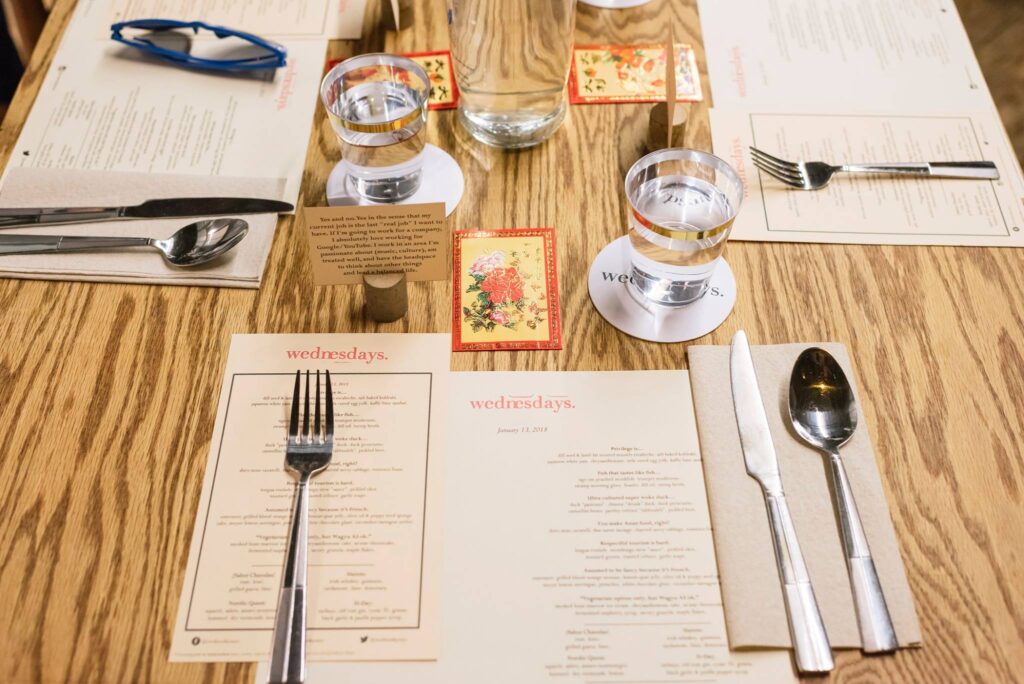
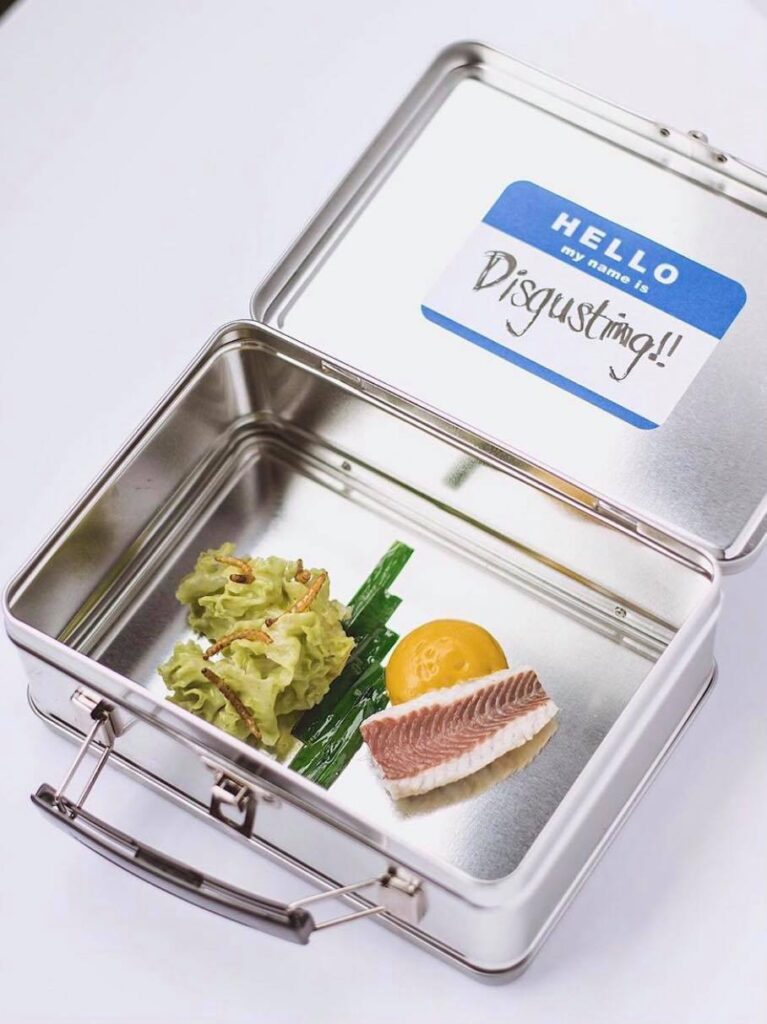
The dish uses many of the ingredients Jenny once frantically dissociated herself from, which at present has been gentrified into something clever and expensive. She describes on her Instagram, “This dish is composed of ingredients that have “turned cool” in the last few decades: eel (roasted), garlic chive (as Chinese Americans know, this is what makes some food “smell like farts”), oysters (torched and blended into sweet potato), snow fungus in a duck tongue & chrysanthemum sauce and fried mealworms. It’s served in a metal lunchbox under sharp white light, adorned with a sticker that doesn’t contain a name, but a judgement.” (Photo courtesy of Jenny Dorsey)
What was the biggest challenge you have faced?
Getting up after being Chopped – I wrote an essay about that here.
****
““Chef Jenny, you’ve been Chopped.”
The sound of Ted Allen’s voice lingered in the air, accented by the shuffling of multiple cameras panning to catch my reaction. This was real time—one punchy, TV-ready line. No music. No fanfare. The ensuing silence peered at me and I found myself wishing for a commercial break, anything to provide some barrier between me and right now.
I glanced at the other contestants, noting wryly the relief and nervous anticipation on their faces alongside a quiet ode of goodbye—certainly the same reaction I would’ve had in their shoes. Two looked like they wanted to say a few last words, but there was no option to do that. It suddenly occurred to me that power is not gained, but taken when others offer up their own stake.
But fast forward to today, and this one-sided exchange seems as arbitrary as walking through grey doors marked “Food Network.”
The camera lights felt exceptionally hot as I turned to smile stiffly at Ted and the judges. I imagined my more strategic alter ego lurked in the shadows somewhere, just off screen. The side of me that could handle pain with nonchalance, that mentally won no matter the occasion. But instead I stood in main frame, my breath catching and the beginning of tears clawing at my eyes.
I leveled my chin and listened to my least favorite judge make one last, snide farewell comment about my higher education. I wanted to storm up there and argue, diminish her accomplishments the same way she did mine. “Sometimes,” my smarter self reminded me, “strength is walking away.”
But where do I exit? This almost laughable question brought me back to being seven, looking for the bathroom in an unfamiliar mall, filled with strangers. A few awkward seconds climbed by as my eyes darted around the studio before settling on the same entryway as we had all walked through.
I took one last shaky breath before I strode past the chopping block and into TV anonymity.
Or so I thought. I had forgotten the cruelest part of TV: The guided meltdown, maneuvered backstage. “How do you feel?” the producer beamed at me in green room, “Was it challenging for you to lose the very first round, seeing you just won another show? You said yourself you felt Chopped is such an important show.”
For a long time, I dismissed this as simply the ugly side of entertainment, the silver screen schadenfreude. There’s some truth to that, but really this interaction is about power. You’re a maimed animal, bleeding freely in a field of vultures. It’s so easy to buy into their sincerity.
But that day I found my graceful self, a tourniquet to keep me going until the interview was finally over. As I left, one of the cameramen shook my hand and thanked me for “being on this little show.” I almost laughed at his unintended insight and malice all in one.
I packed up my knives and walked home. Once I arrived, I sat on the floor and doodled aimlessly on a piece of paper.
Bitterness dripped through me, like ink in water–subtle, inviting. “It was so unfair!” Next, fury. This felt like vomit, the ugly bile after a series of bad decisions where your throat is raw and your mouth is coated in shame. At last, I cried. I cried and cried and cried. My dogs licked my face and I cried over that too, snowballing into a pit of slobber, snot and tears.
But as many of us know, the tears will stop. I never understood why before, but now I think I do. It’s like my mind was still buffering through the events of the day and suddenly, I was confronted with the realization I could never be the exact person I originally attempted to be. The contrast was so harsh I couldn’t process it and cry at the same time.
I found myself faced again with the nature of power. Earlier today, it seemed an obvious delineation—the Chopped studio is distinctly separate from my apartment and the rest of my life. But now, curled up at home, the lines felt fuzzy. What did it mean to still retain my power?
A list of tactical next steps kicked in. My biggest weakness during the competition was the fact I didn’t clean my softshell crabs thoroughly and undercooked them—something I did have the power to change. I stood up and washed my face. This burst of determination sustained me through a painful trip to the Lobster Place, located in the same building as Food Network, for two dozen crabs.
I tore open the package the minute I got home, lined the crabs up and got to work. Off came the gills and those little beady eyes too. One by one they were cleaned and cooked; pan-fried, deep-fried, sautéed, grilled, baked, steamed to the right doneness.
Eventually, all the crabs were processed and I was left alone to ruminate on all my shortcomings for the day. My retrospective play-by-play revealed I could’ve won—when supplemented with variations of the modifier “if only.”
I was so consumed I didn’t even notice my husband come home. I stared at him blankly when he asked if I wanted to talk. Seeing my reaction, he simply pulled me in for an embrace.
That’s when my post-show frenzied bravado collapsed completely. I felt the strangest, strongest reaction of the day: utter repulsion. Not by him, but by myself. “You shouldn’t get a hug,” I felt my thoughts screaming, “you don’t deserve a hug.”
Such is the ability of our own minds as we process the abject nature of failure—alone, failure is a description of an event at an intersection of time. My internalization of failure, however, twisted that event into a part of my identity.
This brought me full circle to the crux of my power struggle: It was me who had yielded the power to construct my reality. Failure and power shook hands the minute I allowed one moment to dictate my worth. When I began to fixate on changing the past, instead of the future.
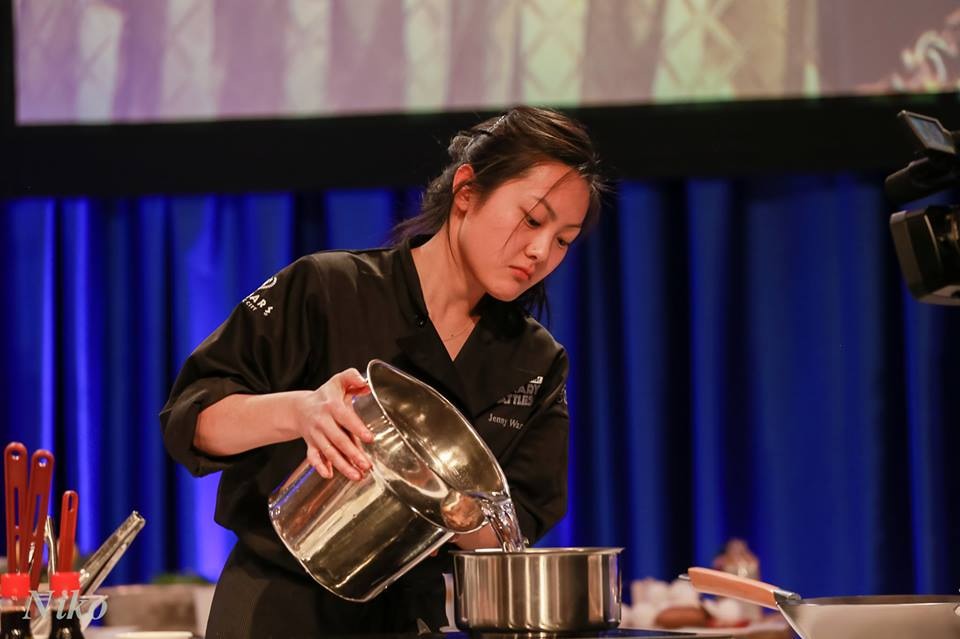
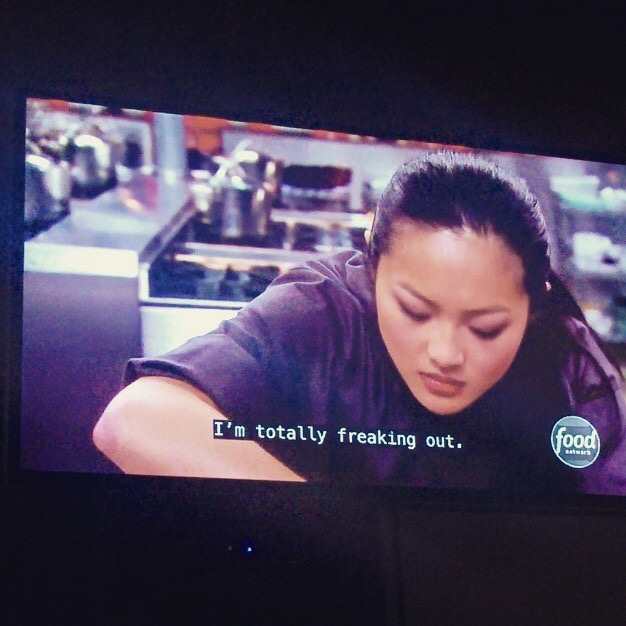
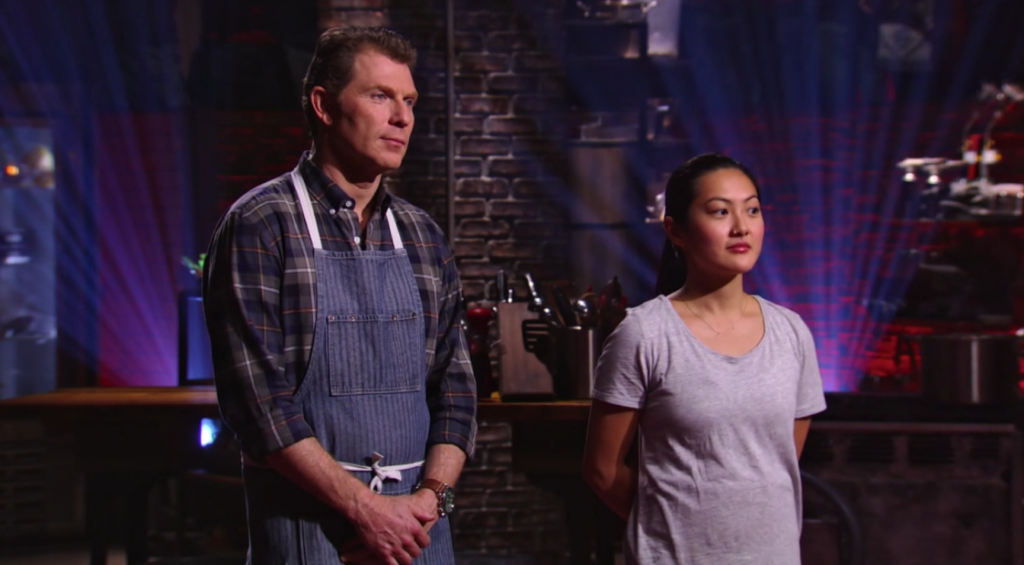
How/ what did you do to get over it?
“As Brene Brown says in her research on shame, vulnerability, and worthiness—the shocking difference between those with a strong sense of love and belonging and those without is simply that the former believed themselves to be worthy of love and belonging.
That day, I saw that the best way forward was to wrap my smelly shellfish hands around my husband and hug him back like I deserved it.
My perspective took a long time to change. I continually wrestled with the same cycle of bitterness, anger, tears, confusion and insecurity. But with time and kindness, I always arrived at the same place: Failure is not a loss of power, but a reminder that only you have the power to control how it shapes you.
I chose to wear my loss proudly, turning my eliminated dish into a signature menu item (it was subsequently featured in my Huffington Post video, generating over 50,000 views) and as impetus to learn more about shellfish. In an ironic turn, my experience helped me land a James Beard Foundation fellowship to study in shellfish heaven: Portland, Maine.
The concept of failure is an exciting one for stories and lessons, but I posit it is merely a noun, until we impose our identity onto it. Instead of allowing these instances to form a siege against my worth, I’ve reshaped my mental narrative to allow multiple descriptions of myself.
My life and its timeline is multifaceted: While failure marks what I may or may not have done, I hold the power to know who I am.”
What is the best advice you can give to anyone wanting to get into or excel in your field?
Take others’ advice with a grain of salt. It’s your life, you must own up to how you decide to live it.
What is your favorite thing about your culture or living in your city?
I’m currently in Los Angeles and I love that on the East side, we prioritize non-white voices. It’s awesome.
How have you been spending your days during this COVID-19 quarantine period?
I’ve been focusing on spending time with my family. There’s been, sadly, a lot of death and I’ve been doing serious introspection about what I want for myself and my relationships.
Please tell us about Studio ATAO’s Community Skillshare Series, and how readers can take part in it.
Our Community Skillshares are virtual, expert-led learning sessions hosted via IG Live on topics that are pertinent and actionable for our community. We focus on topics that are difficult to understand, access, and/or stigmatized by the public. Each session is complemented with a (lengthy) resources document so everyone can learn more. We started off with financial planning (for individuals + for small business owners), just finished a season about mental health and are now in our season about civic engagement and how the government works.
Please follow our IG @studioatao for updates, and you can find all the resources for our Skillshares at www.studioatao.org/resources-blog.